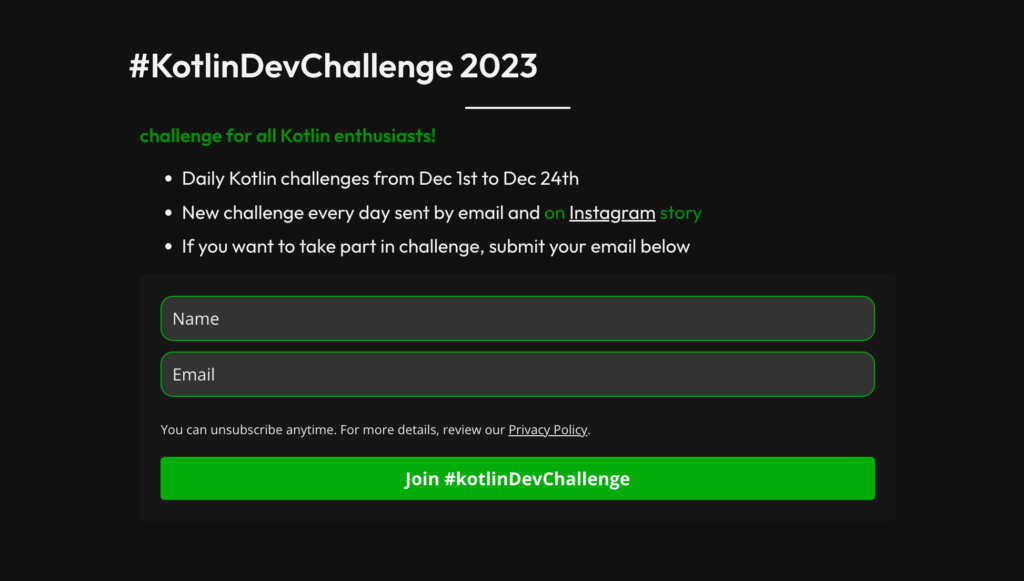#kotlinDevChallenge – 24

What do you love most about Kotlin? Productivity increase? Idioms? Or that it isn’t Java? Maybe something else! Share it. It can be short. It can bo longer. You’ll get your point if the answer won’t be screaming “I was generated by AI”.
#kotlinDevChallenge – 23

Challenge checking your generics knowledge 🙂 No long description is necessary. You can select more than one answer. Good luck!
#kotlinDevChallenge – 22

Write a function to aggregate sales data from a list of transactions, each containing multiple product IDs. Use a ProductsDatabase class with methods to retrieve product details by ID and to get all products. The function should return the names of the most sold products. Include an option to limit the number of product names […]
#kotlinDevChallenge – 21

Very fun challenge today. Your task is to… make the code compile. Task Description: We want to be able to use destructive declaration on state: State
#kotlinDevChallenge – 20

Challenge testing your stdlib knowledge 🙂 The tailrec modifier in Kotlin is used to optimize tail-recursive functions, converting them into loops internally to prevent stack overflow errors. The question is…
#kotlinDevChallenge – 19

Create a Kotlin function that takes a URL string as input and extracts various components from it, such as the protocol, domain, path, and query parameters. Task Description: Test cases
#kotlinDevChallenge – 18

Challenge testing your stdlib knowledge 🙂 Code snippet is given: The question is… what will be printed? Or maybe exception will be thrown?
#kotlinDevChallenge – 17

Implement extension functions plus and minus to perform vector addition and subtraction. Task Description: Example usage:
#kotlinDevChallenge – 16

Create a Kotlin function to determine whether two given strings are anagrams of each other, ignoring case and any non-alphabetic characters. An anagram uses all the original letters exactly once. Task Description:
#kotlinDevChallenge – 15

Understanding when a Kotlin sequence evaluates its elements is crucial to effectively using sequences in Kotlin, especially for performance optimization. When does a Kotlin sequence evaluate its elements? Mark all correct answers and submit form.